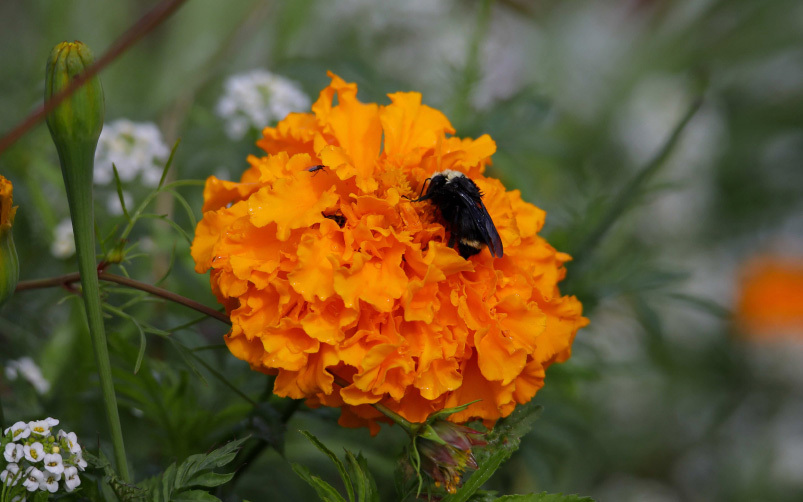What’s the best way to deadhead my flowering plants?

Deadheading, or removing spent blooms from your plants, is an easy way to give those plants another round (or two) of flowers during their blooming season.
Typically, once a plant (annual or perennial) is done flowering, it stops the flowering process and turns its energy towards forming seeds. When you deadhead, all the energy and nutrients that would have gone into producing new seeds helps generate more flowers instead. So depending on the type of plant, you can get a second flowering, or even more, over the course of the growing season.
How do you deadhead?
The great thing about deadheading is that you don’t need any special tools or hours of spare time. On a rhododendron, for example, simply use your fingers to pinch off the spent blooms. Most plants can be deadheaded this way. For larger, woody stems, such as roses and hydrangea, you’ll need pruning shears.
When deadheading, remove the flower stem right below the spent flower, and just above the next set of healthy leaves. And be sure to remove any seed pods that may have started to form behind the flower.
Should I deadhead all my flowering plants and shrubs?
No. Not all plants need to be deadheaded, and doing so could be detrimental to some. Plants that bloom often, like geraniums, zinnia and snapdragons will flower all summer long if you deadhead them regularly. But others, like foxglove, have to reseed in order to bloom the following year. If you’re not sure the plants you have can be deadheaded, just do a little quick research to be sure.
What do I do with the deadheaded flowers?
If you’re going to go through the effort to deadhead your flowering plants to make your yard look sharp, you’ll want to pick up those deadheaded flowers. If you have a home composting pile, toss them in. If you’re not a home composter, they can go into your green-lid Rogue Disposal & Recycling yard debris bin. (And when those bins are collected, the leaves, grass clippings and other plant matter — like deadheaded flowers — become part of Rogue Compost. Win-win!)
Share This
